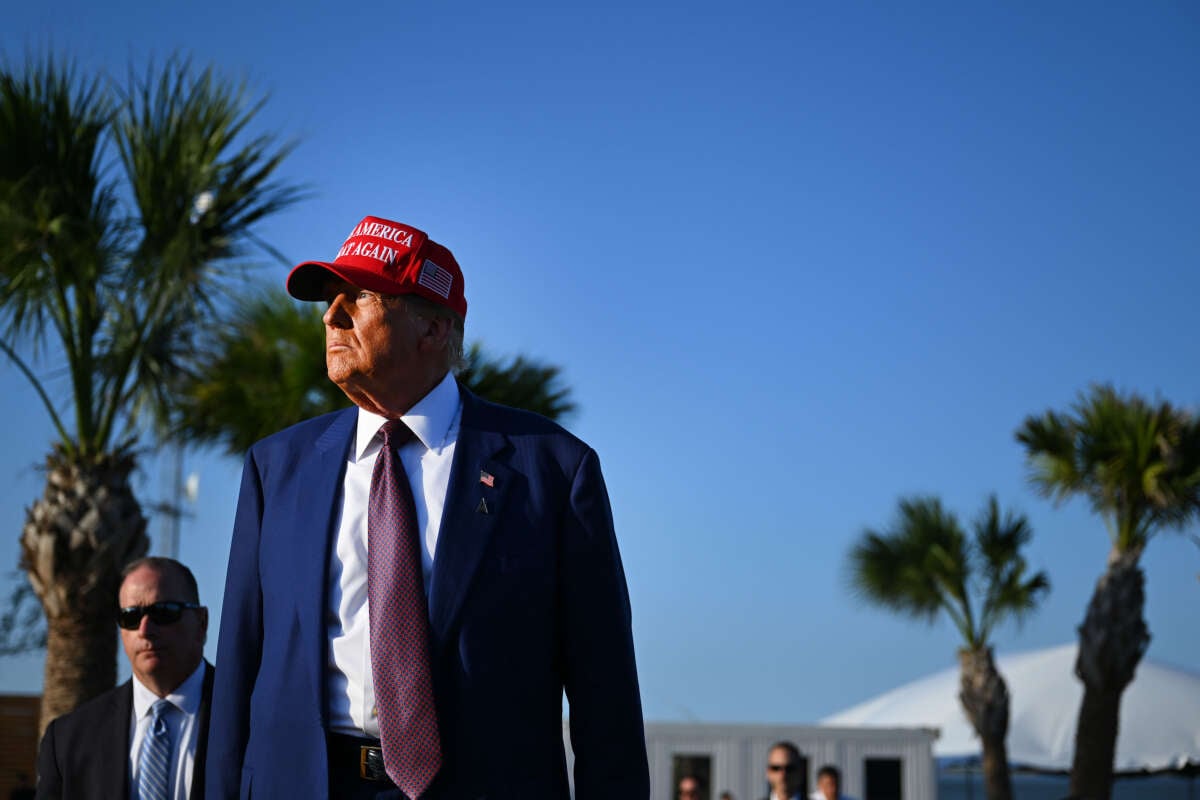Since Election Day, president-elect Donald Trump and his allies have repeatedly claimed that he has a “mandate” to govern. But several political experts have cast doubts on those claims, citing historical election data to demonstrate that Trump’s win was by no measure an impressive victory.
In his victory speech in the early hours of November 6, Trump asserted that he was given an “unprecedented and powerful mandate” from voters, describing his coalition as “the broadest” and “most unified” in “all of American history.”
Republican lawmakers and conservative commentators have repeated the claim. Speaker of the House Mike Johnson (R-Louisiana) wrote in a fundraiser email that “The American people have spoken, and they have given President Trump and our House Republicans a mandate.” And although he admitted that mandates had their limits (as evidenced by Trump’s failed pick of Matt Gaetz for Attorney General), Fox News personality Trey Gowdy similarly stated that Trump “won a mandate on Election Night…on the border, the economy, foreign policy” and “to reform and disrupt” Washington.
Presidents-elect throughout history have claimed that they have a mandate in order to shore up support for their causes, and to justify laws to drastically reshape U.S. governance or society. But experts have said that the evidence that Trump does not have a mandate is clear.
It’s hard to consider a presidential election victory a mandate, for example, when the candidate in question doesn’t win a majority of votes in the popular vote count. That’s the case for Trump in 2024, as his 77,034,011 votes make up just 49.86 percent of the total votes cast. While he attained more votes than his Democratic opponent, Kamala Harris, more people voted for her and third party candidates than for Trump.
Trump’s margin of victory over Harris is also narrower than the margin in other presidential elections. In the past 40 years of presidential elections, all but one of the races had larger popular vote differences than the 2024 contest did.
When it comes to the Electoral College, Trump won 312 out of the 538 electors’ votes. But while that’s an improvement from his total in 2016, it’s a small margin of victory when compared to other elections throughout U.S. history.
Trump won the Electoral College by a margin of 15.98 percent, the third-widest margin in the 21st century so far. (Only former President Barack Obama’s two election wins were wider victories.) Still, compared to other transitional moments in U.S. history, Trump’s win is minuscule.
Ronald Reagan’s win in 1980 was by an 81.8 percent margin, while Franklin Roosevelt won with a 77.8 percent margin. Even Abraham Lincoln, who won a contentious election in 1860, won with a wider gap between himself and other candidates, winning by a margin of 35.6 percent.
Indeed, Trump’s margin of victory in the Electoral College is the 11th narrowest in U.S. history.
Even having “trifecta” control of the federal government (control of the House, the Senate and the presidency) isn’t a true measure of a mandate, as the effects of gerrymandering likely blur the truth about how successful a party has been. (Notably, despite having trifecta control, Republicans will not have a filibuster-proof majority in the Senate, and control of the House is set to be very narrow yet again.)
Some experts have contended the concept of a mandate altogether. In an op-ed for The Hill about Trump’s supposed mandate, Saikrishna Prakash, a law professor and presidential history expert at University of Virginia, said that “the insistence on a popular mandate by any victor is invariably a self-serving claim masquerading as objective analysis.”
“Many of his voters did no more than decide between the two main candidates on offer. … While it is true that voters back candidates and that every candidate espoused policies during the election, it is not true that those voting for the winner meant to endorse every policy the winner espoused. To the contrary, this claim defies common sense,” Prakash wrote.
Julia Azari, a political science professor at Marquette University, opined on the mandate question in an op-ed for The Conversation, stating that such claims are “employed by politicians in weak positions, in response to polarized politics and flagging legitimacy.”
Presidents frequently push the idea of a mandate to expand the power of the office itself, as Trump is attempting to do with demands for recess appointments going unchecked. But they also push the mandate talk when they’re worried they’re going to be challenged, Azari suggested.
“The Trump team is riding high on a presumptive popular vote victory. But as the administration pursues a controversial policy agenda, including possible mass deportations and tariffs, we might expect the election, and its implied mandate, to come into play as a justification for these choices,” Azari said.
Angry, shocked, overwhelmed? Take action: Support independent media.
We’ve borne witness to a chaotic first few months in Trump’s presidency.
Over the last months, each executive order has delivered shock and bewilderment — a core part of a strategy to make the right-wing turn feel inevitable and overwhelming. But, as organizer Sandra Avalos implored us to remember in Truthout last November, “Together, we are more powerful than Trump.”
Indeed, the Trump administration is pushing through executive orders, but — as we’ve reported at Truthout — many are in legal limbo and face court challenges from unions and civil rights groups. Efforts to quash anti-racist teaching and DEI programs are stalled by education faculty, staff, and students refusing to comply. And communities across the country are coming together to raise the alarm on ICE raids, inform neighbors of their civil rights, and protect each other in moving shows of solidarity.
It will be a long fight ahead. And as nonprofit movement media, Truthout plans to be there documenting and uplifting resistance.
As we undertake this life-sustaining work, we appeal for your support. Please, if you find value in what we do, join our community of sustainers by making a monthly or one-time gift.
